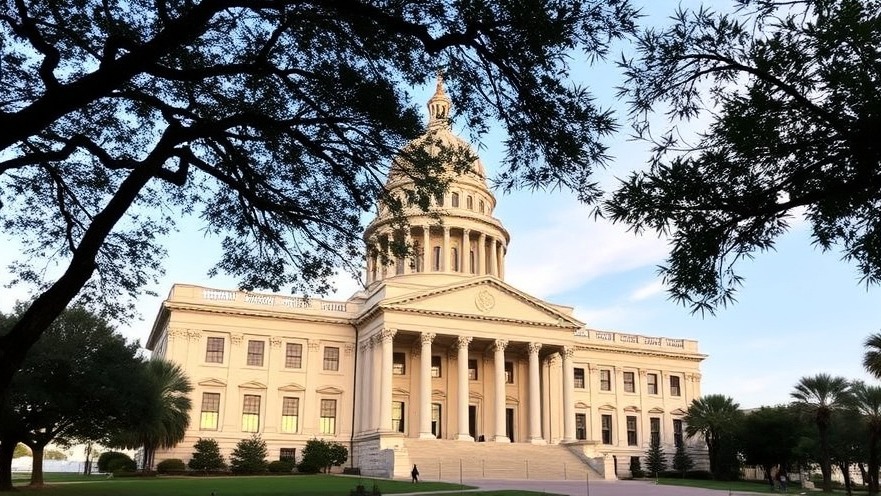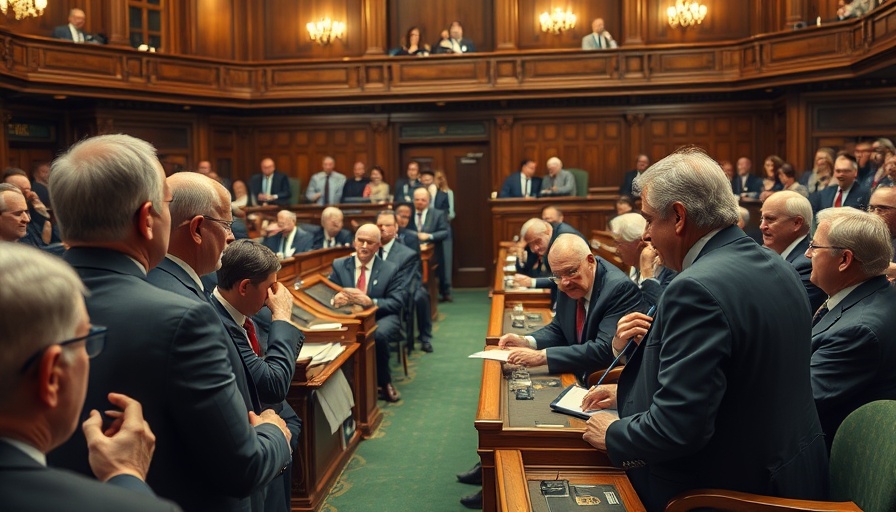
The Ruling's Impact on Education in Texas
In a significant legal move, a Texas judge has temporarily blocked the implementation of a controversial requirement mandating that the Ten Commandments be displayed in courtrooms and public schools across 11 school districts, including prominent areas in and around San Antonio. This decision follows a wave of legal disputes surrounding the presence of religious symbols in public institutions, drawing attention to the ongoing debate over the intersection of education, law, and religion.
Understanding the Legal Context
The judge’s ruling represents a pivotal moment in the ongoing examination of religious expressions within public spheres. Advocates for the ruling argue that imposing such religious tenets on public institutions may infringe upon the constitutional principle of separation of church and state. This case sheds light on broader questions about religious freedom and governmental roles in educational environments.
In recent years, similar controversies have emerged nationwide. Legal analysts have observed that judgments often hinge on the nuances of state constitutions versus federal interpretations, creating a complex legal landscape addressed case by case.
Community Reactions and Public Opinion
The decision has sparked varied reactions within the San Antonio community. Supporters of the ruling celebrate it as a victory for secular education, ensuring that public schools remain inclusive environments free from religious bias. Conversely, opponents argue that the display of the Ten Commandments would serve as a moral guide for students, fostering a sense of ethical responsibility.
Engagement from local citizens has led to heated discussions at school board meetings, underscoring the district's commitment to reflecting community values while adhering to legal frameworks. The San Antonio community continues to navigate its response to this ruling, reflecting a tapestry of opinions that are passionate and deeply held.
Future Implications for Education
This temporary injunction raises important questions about the future of educational policy in Texas. As similar legal challenges arise, schools may need to consider measures that celebrate diversity and protect the rights of all students, regardless of their religious backgrounds. The Texas education system must balance the interests of various stakeholders while respecting constitutional mandates.
Additionally, the ruling could lay the groundwork for future legislation on religious expressions in schools, prompting lawmakers to consider guidelines that comply with legal precedents while addressing the concerns of their constituents.
National Perspectives on Religious Displays
This situation in Texas mirrors national trends where courts have increasingly scrutinized the display of religious symbols in public spaces. Various states have faced court rulings that have either upheld or removed religious displays based on interpretations of constitutional law. Legal experts predict that this case in Texas may influence similar actions in other states, renewing nationwide conversations about the role of religion in public education.
Public discussions are likely to amplify as more districts across the country assess their policies regarding religious exhibits in schools, highlighting the connection between local governance and national norms.
Educational Institutions' Roles and Responsibilities
The dialogue surrounding this issue prompts educational institutions to reflect on their responsibilities. In creating inclusive, respectful environments, schools must consider how their policies align with their communities' diverse cultural and religious backgrounds while remaining compliant with legal structures.
Stakeholders in the education sector should remain vigilant about these developments, as they could herald broader reforms affecting curriculum, policy, and student experiences across Texas and potentially beyond.
Call to Action
As the San Antonio community navigates this complex topic, it is vital for citizens to engage in discussions with local representatives and participate in school board meetings. By doing so, residents can play a crucial role in shaping educational policy that reflects their values while adhering to constitutional guidelines.
Your voice matters! Stay informed and continue to follow local news updates to understand how this ruling will impact San Antonio schools moving forward.
 Add Element
Add Element  Add Row
Add Row 



Write A Comment